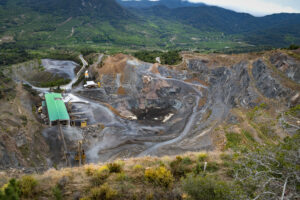Here’s why companies undertake demergers and spinoffs, and some of the most famous deals in the last decade!

Investors often get themselves into frenzies over M&A deals (or just speculation of them), but demergers and spinoffs get less attention. Nonetheless, they can be even more important for investors as M&A deals. Because so often, investors just get cash for their investment and no longer have to worry. But in cases of demergers and spinoffs, investors may get shares in the new entity by default, or perhaps have to choose between them.
This article looks at why companies undertake them, and some of the most famous deals in the last decade or so.
What are the Best ASX Stocks to invest in right now?
Check our buy/sell tips

Why companies undertake demergers and spinoffs
The process is essentially a way to “unbundle” a business into separate entities that can operate independently. There is a wide variety of strategic, financial, and operational reasons behind them but they all boil down to the fact that they think there’s less value to be realised by things staying the way they are.
Take Chalice Mining for instance. When it discovered the Julimar project, it was one of many projects in its portfolio. Its business model was essentially to find gold projects then build up enough of a resource to sell it to a larger developer. Julimar changed all that and so demanded virtually all of the company’s time and money. This meant that all its projects would have been neglected, and so in December 2021, Falcon Metals (ASX:FAL) was born to house all of the gold assets.
But even in circumstances where a company would have time and money to invest in other assets, it isn’t always good to have them all under one roof. This is particularly so even in large conglomerates like Wesfarmers – it could have kept Coles in house, but spun it off. Different businesses often require different strategies, capital allocation, and management focus. Demerging allows each business to focus on its own market, customers, and operational priorities.
The tax and regulatory regimes can be another reason. Separation can simplify compliance, but also demergers may (in some case) be structured as tax-free distributions to shareholders which is (obviously) attractive.
A demerger or spin-off is not just about “splitting for the sake of it.” It is usually aimed at unlocking value, clarifying strategy, improving focus, and optimising capital. The success depends on market conditions, execution, and whether the newly independent entities can perform better on their own than within the parent. Sometimes it works, at other times it doesn’t. Now let’s take a look at some famous case studies.
The most famous demergers and spinoffs in the last decade
BHP demerging South32
This was back in 2015. BHP’s intent was to simplify its portfolio and South32 was a very diversified company, although it did have unique exposure to alumina. A decade on, it is hard to say that this has not worked as both companies have realised upside. South32 has been able to chart its own course and gained from strong commodity prices. It has returned capital and has good cash-generating capabilities; it seems to be a relatively lean, well‑capitalised miner.
Wesfarmers demerging Coles
Wesfarmers bought out Coles in 2007, only to spin it out again in 2018. So often, when big companies buy other big business, it is intentional with the plan to make it bigger and better and make money from them. A decade later, this had been achieved.
The demerger allowed Wesfarmers to more heavily weight its capital into its other growth businesses (e.g., Bunnings, Officeworks). While the BHP/South32 merger was a success, it is harder to tell in this case. Coles has strong fundamentals, but shareholder returns immediately post-demerger were less stellar, and competitive risks remain. The demerger likely achieved its strategic purpose, but value creation is more nuanced.
Woolworths demerging Endeavour
This deal was a win situation for Woolworths, but not for Endeavour. Woolworths saw that younger consumers did not drink alcohol and gamble, so did not want exposure to it. The irony is: Endeavour is still reliant on Woolworths for key technology functions which are not expected to separate until 2030. Endeavour pays the Fresh Food People over $500m a year.
Tabcorp demerging The Lottery Corporation
In 2022, Tabcorp demerged The Lottery Corporation, creating two listed entities: one for lotteries, and another for Tabcorp’s wagering and gaming. The Lottery Corporation seems to have executed well, delivering solid financials and maintaining a stable business. As for Tabcorp, it was under pressure until former AFL chief Gillon McLaughlin was hired and turned things around.
Webjet demerging the Travel and B2C businesses
Helloworld’s bid for the Travel business is what inspired this article. In 2024, Webjet was splti into two businesses with one hosting the consumer-facing OTA that is the company’s namesake among other B2C businesses, whilst the B2B business (WebBeds) was put into a company known as Web Travel Group, with the other known as Webjet Group. Confused? We sympathise with our readers, because we have struggled too.
Obviously, both companies can put tailored strategies to each of their businesses. But the fact that Helloworld (ASX:HLO) made an opportunistic bid in the next calendar year tells you which business is doing better.
GrainCorp demerging United Malt Group
In March 2020, the world was shutting down. Oh and, GainCorp demerged its malting business. Beyond the vibe all companies undertaking demergers say of letting investors pick and choose what to invest in as well as give each business its own independent management…GrainCorp said the split would help accelerate cost savings (the board estimated about $20m a year) by simplifying operations. GrainCorp was able to strengthen its balance sheet and it avoided the pandemic downside…well, at least the downside from pubs shutting down. UMG was ultimately delisted in 2023 when it was taken over. Whilst GNC is always volatile being an agriculture stock, it got rid of its debt.
Liontown demerging Minerals 260
There are endless case studies we could raise about mining and resources companies spinning off assets. We already mentioned Chalice and Falcon. Let’s stick with just one more. Liontown is the company behind Kathleen Valley which is now an operating mine.
It also had non-lithium exploration assets including the Moora Gold‑Ni‑Cu‑PGE Project, Koojan JV, Dingo Rocks, and Yalwest tenements. Minerals 260 has done OK for itself, building itself to the position where in April 2025, it bought the Bullabulling Gold project for over $160m and is aiming for first production in 2028.
Blog Categories
Get Our Top 5 ASX Stocks for FY26
Recent Posts
Aussie Broadband (ASX:ABB): A likeable telco that can reach for the skies again
Aussie Broadband (ASX:ABB) is a good illustration of a Telco stock you can like (as opposed to Telstra). Since listing on…
Here are 5 ASX Mining Stocks Commencing Production in 2026! Is it Time to Buy?
There are a handful of ASX Mining Stocks Commencing Production in 2026. This article recaps 5 such companies and looks…
Alkane Resources (ASX:ALK) Hits 5-Year High After 188% Rally: Time to Buy or Take Profits?
Alkane Resources: A Strong Buy After 188% Rally? Alkane Resources (ASX: ALK) jumped 11 per cent last week to reach…


